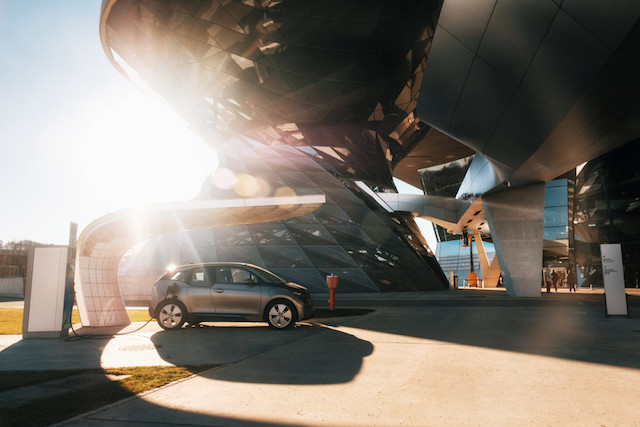Cars are responsible for 12% of total EU carbon dioxide emissions, the main greenhouse gas. As the country with the youngest fleet of vehicles and an affluent population, Luxembourg is ideally placed to take the first steps to change things.
It took its first steps in 2016, by commissioning US economist Jeremy Rifkin to analyse all parts of the economy and develop a sustainable roadmap for 2050, not only in terms of mobility but also, industry, finance, food, construction, and energy.
The Rifkin report, also known as the “Third Industrial Revolution”, set out the vision for a fully electric fleet of passenger vehicles and public transport by 2050.
It spelled good news for dealerships in Luxembourg where electric, hybrid and plugin hybrid car sales have been continually growing in recent years, reaching a record 2,235 in 2018.
However, with these vehicles representing just 4% of new car sales in 2018, sales will need to pick up the pace if Luxembourg is to achieve Rifkin’s recommended goal that “all new registrations in the country be electric from 2025 onwards.”
Lowering costs
In any case, the buoyant figures are impressive considering that these vehicles are more expensive than their diesel/petrol counterparts mainly because of the battery costs (prices starting at €30,000 for an economy car), and because they are so new and newer, better models are constantly hitting the market, their residual values on the second-hand market remain unclear.
Across Europe, sales of electric vehicles have increased significantly since 2010. “While EVs [electric vehicles] were mainly niche cars seven years ago, most of the car brands now offer EVs, and nowadays these cover the entire spectrum of car segments,” a recent Joint Research Center study reported, pointing out that barriers remain, such as purchase cost, driving range, recharging infrastructure availability, model choice and maintenance costs.
“Recent studies indicate that battery costs may decline faster than originally anticipated,” the report author wrote, citing Bloomberg New Energy 2018. The author adds that purchase costs will “decrease as technology evolves and more models are available on the market and increase competition.” Until this critical mass is achieved, financial incentives are needed to bridge the transition.
Incentives
Mobility minister François Bausch said earlier in January 2019 that the tax incentive scheme for hybrid and electric vehicles, in place since 1 January 2017, will be replaced with a bonus scheme. This measure was viewed favourably by industry chiefs in Luxembourg, who see such financial incentives as a major force for driving the transition to electric, hybrid and hybrid plugin vehicles.
However, dealerships may have been less enthusiastic about the report’s findings in relation to maintenance costs, which it said “may actually be lower due to fewer moving parts, compared to ICE [internal combustion engine] vehicles.” This could mean less need for mechanical and engineering staff, although electrical diagnostics will still be necessary.
Another worrying outcome for car dealers in Luxembourg’s strategy is that the government wants to reduce the number of vehicles on the road, thus resulting in fewer sales.
Its Modu 2.0 strategy includes the rollout of the covoiturage carpooling app and short-term car rentals through autopartage.
So, private car ownership will die out?
Not yet. Modu 2.0 leaves some space for private car ownership in the immediate future. The mobility ministry is putting its money on a multimodal approach, in which people drive privately-owned cars to P+R car parks before taking public transport from connected hubs or “poles d’échanges” to reach their destination.
Tests for connected and autonomous vehicles are meanwhile being carried out in the cross-border region encompassing Luxembourg, Germany and France.
The first viable private autonomous vehicles will, like the first electric cars, no doubt be at the top end of the cost scale. But, their adoption is unlikely to happen in the same ways as electric vehicles because connected technologies mean they can be used in a transport as a service model and shared.
US think tank RethinkX says in its report “Rethinking Transportation” that this new kind of low-cost alternative will be operated by ride-share companies, causing private car ownership in the US to drop 80% by 2030.
If these estimates prove correct and it spells the end of privately-owned cars, it will be interesting to see how car dealerships evolve and what role they will play in future in Luxembourg--be they to offer purely mechanical and maintenance support or serve as the first generation of ride-share operators.
